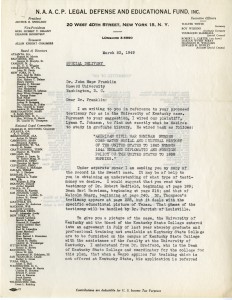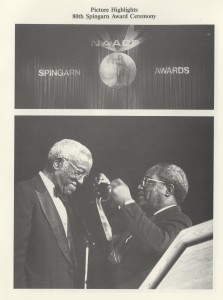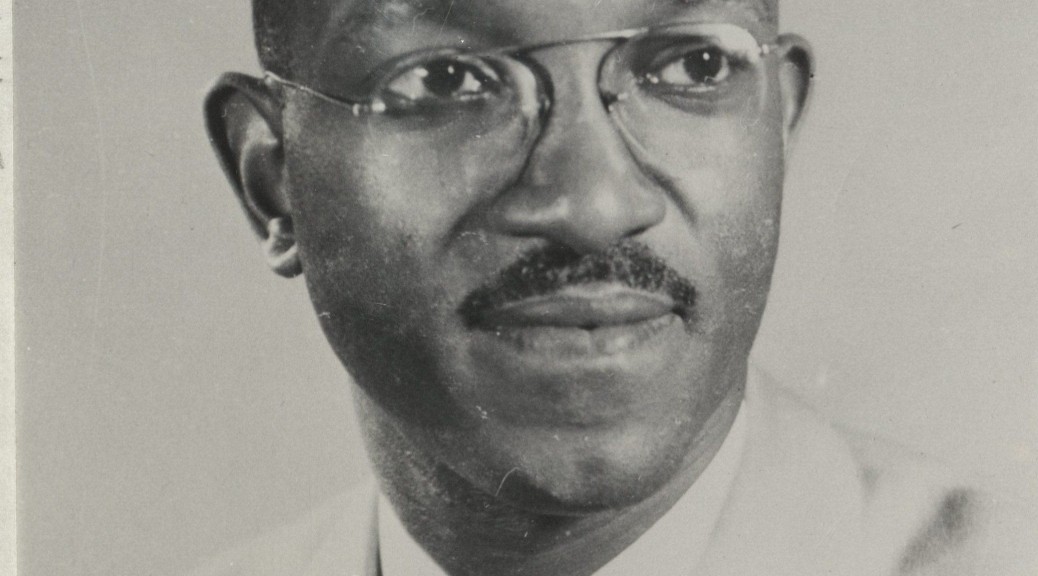The National Association for the Advancement of Colored People (NAACP), founded in 1909, is the oldest and largest civil rights organization in the United States.
In 1949, the NAACP approached John Hope Franklin to provide his expertise and testify at the Lyman Johnson v. University of Kentucky trial. The Johnson case successfully challenged the “separate but equal” doctrine that had been established by the Plessy v. Fergusson trial of 1896. John Hope Franklin later worked as the lead historian for the NAACP Legal Defense Fund team in preparation for Brown v. Board of Education in 1954. Franklin’s research contributed to Thurgood Marshall and the NAACP’s legal victory in this landmark case.


His relationship with the NAACP continued throughout his life, serving as a memeber of committees of the Legal Defense Fund and a mentor to a number of leaders in the organization. In 1995, the NAACP honored John Hope Franklin with the Spingarn Medal, “in recognition of an unrelenting quest for truth and the enlightenment of Western Civilization.” The Spingarn Medal is the NAACP’s highest honor, and is awarded annually to a person of African descent and American citizenship. The recipient of the Spingarn Medal is an individual who has attained high achievement and distinguished merit in any field.

This series is a part of Duke University’s John Hope Franklin@100: Scholar, Activist, Citizen year-long celebration of the life and legacy of Dr. John Hope Franklin
Submitted by Gloria Ayee, Franklin Research Center Intern


